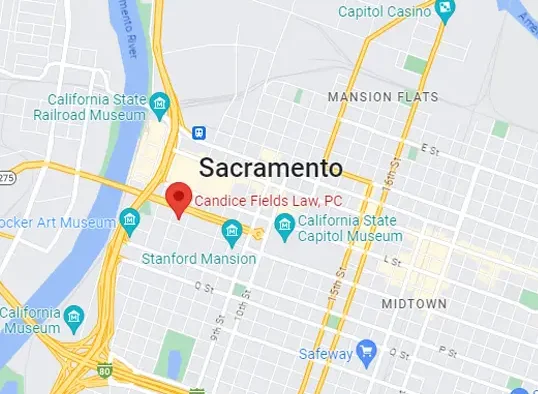What is Entrapment?

Entrapment is a concept often appearing in legal dramas and crime shows, but neyits real-world implications are far more significant and complex. Understanding what entrapment truly means is crucial, especially in criminal defense cases. At Candice Fields Law, PC, we believe in empowering our clients and readers with clear, accurate legal knowledge. So, let's dive into what entrapment is, how it’s defined legally, and its implications in criminal defense.
What Is Entrapment?
Entrapment is a legal defense against criminal charges stemming from the interactions between law enforcement officials and the accused before or during the supposed criminal act. Commonly, entrapment occurs when police use excessive pressure or manipulative tactics to compel an individual into committing an offense.
What is Opportunity?
Opportunity in a legal context, particularly in criminal law, refers to a situation where a person is given the chance or circumstance to commit a crime without any undue influence, coercion, or persuasion from law enforcement. In these situations, the individual already possesses the inclination or predisposition to engage in criminal behavior, and law enforcement simply provides the setting or occasion where the person can choose to act on their predispositions. This concept is often discussed in contrast to entrapment.
Entrapment vs. Opportunity
The distinction between entrapment and opportunity in a legal context is crucial, especially in criminal defense cases. Understanding this difference can determine whether a defense of entrapment is viable in a particular case.
Entrapment
- Inducement by Law Enforcement: The criminal idea is initiated by the police or a government agent.
- Lack of Predisposition: The individual was not inclined or prepared to commit the crime before law enforcement intervention.
Legal Implications
Entrapment is a defense in criminal cases. If proven, it can lead to the dismissal of charges because the defendant's actions are considered to be the result of the government's undue influence rather than their own criminal intent.
Opportunity
- Absence of Inducement: There is no active encouragement or pressure from law enforcement.
- Predisposition Present: The individual already has the inclination or readiness to commit the crime, and law enforcement merely provides the opportunity.
Legal Stance
Offering an opportunity is not considered entrapment. It is a lawful and often used method in sting operations and undercover investigations. If a person willingly commits a crime when presented with an opportunity, they generally cannot use entrapment as a defense.
Fictional Scenario 1: Entrapment
Characters: Detective Jane Smith (undercover officer) and Tom J. (local resident)
Situation: Tom J., a local resident with no criminal record or history of illegal activities, is approached by Detective Jane Smith, who is undercover. She befriends Tom and starts to frequently talk about financial hardships. Over time, Detective Smith begins to pressure Tom, suggesting that he could solve both their financial problems by robbing a local store, insisting that she has a foolproof plan, and it would be easy money. Tom, who has never considered committing a crime and initially refuses, eventually succumbs to the continuous pressure, and agrees to participate in the plan. They are both arrested during the attempted robbery.
Entrapment Aspect: This is a case of entrapment because Detective Smith initiated the criminal plan and persistently pressured Tom, who had no previous inclination or intention to commit such a crime, into participating in the illegal activity.
Fictional Scenario 2: Opportunity
Characters: Officer Mike Brown (undercover officer) and Chris G. (known petty thief)
Situation: Chris G. is known in the community for his involvement in small thefts but has never been caught. Officer Mike Brown, working undercover, poses as a tourist in an area frequented by Chris. He conspicuously carries an expensive-looking camera and occasionally leaves it unattended on a café table while he looks away, creating a situation that would appeal to someone with Chris’s known tendencies. Chris notices the unattended camera and, seeing an opportunity, stealthily takes it when Officer Brown appears distracted.
Opportunity Aspect: This scenario represents an opportunity rather than entrapment. Officer Brown did not encourage or induce Chris to steal the camera. He merely created a situation where Chris, who already had a predisposition for theft, could choose to commit the crime.
These two fictional examples illustrate the fine line between entrapment and opportunity in legal terms. In the first scenario, the crime would likely not have occurred without the law enforcement officer's inducement, characterizing entrapment. In the second, the individual's predisposition and choice to commit the crime in the presence of an opportunity highlight the absence of entrapment.
Federal Law Enforcement Tactics Often Mistaken for Entrapment
It's a common misconception that certain tactics used by federal law enforcement agencies constitute entrapment. However, many of these methods are legally permissible and do not meet the legal definition of entrapment. Here are some examples of such tactics:
Increasing Monetary Stakes in Transactions
Agents may elevate the amount of money involved in a criminal transaction to increase the loss amount and, thereby, severity of a sentence. This tactic becomes problematic only if it crosses into inducing a person to commit a crime they wouldn't otherwise consider. However, simply raising the stakes in an existing criminal plan, where the individual already has intent and willingness to commit the crime, is not entrapment. It's important to note that an experienced criminal defense lawyer may be able to argue for a lower calculated loss amount.
Undercover Operations
Federal agents often work undercover to investigate criminal activities. The mere act of posing as a criminal, drug dealer, or any other illicit role is not entrapment. As long as the agent doesn't induce a crime that the suspect wasn't already predisposed to commit, it's a legal tactic.
Sting Operations
Sting operations involve law enforcement creating a scenario to catch a person committing a crime (e.g., setting up a fake drug buy). These are not entrapment if the suspect demonstrates a readiness and willingness to break the law without improper persuasion from agents.
Providing Opportunities for Crime
Offering opportunities to commit a crime (like leaving valuable goods unguarded) is not entrapment if the person intends to commit such crimes. Entrapment would require more than just the opportunity; it would need coercion or overbearing persuasion.
Passive Participation
Law enforcement officers passively participating in a crime at the suspect's request, such as purchasing illegal substances, is not entrapment if the suspect initiated the transaction and intended to commit the crime.
Allowing Crimes to Occur
Allowing a crime to occur or continue for investigative purposes is not entrapment. This can include observing drug deals or other illegal activities without immediate intervention.
Solicitation
An agent asking if someone is interested in illegal goods or services (like drugs or illegal weapons) without pressuring or inducing them to make the purchase does not typically amount to entrapment.
Recording Conversations
Recording conversations, even without one party's knowledge (in jurisdictions where this is legal), is not entrapment. It’s a common technique in gathering evidence.
Online Decoy Operations
Using decoys (like pretending to be a minor online in child exploitation cases) is not entrapment if the suspect initiates contact and has criminal intent.
Refusing to Disclose Identity
Undercover agents are not required to disclose their law enforcement status, even if directly asked. The myth that they must identify themselves as law enforcement upon being asked is just that—a myth.
False Promises
Agents making false promises (like a high return on an illegal investment scheme) is not entrapment, as long as the target already intended to engage in the illegal activity.
Evaluating an Entrapment Claim: Understanding the Subjective and Objective Criteria

When evaluating an entrapment defense, understanding the differences between the subjective and objective standards is crucial. These standards are the primary legal frameworks used to determine whether an individual's criminal behavior was the result of entrapment by law enforcement.
Subjective Standard
Focus on Defendant's Predisposition
The subjective standard assesses the defendant's predisposition to commit the crime. This involves evaluating whether the defendant was already inclined to commit the offense before any law enforcement intervention.
Key Considerations
- Prior Criminal Behavior: Examination of the defendant’s past criminal history or willingness to engage in similar criminal activities.
- Response to Inducement: How readily the defendant agreed to commit the crime after being approached by law enforcement.
- Nature of Inducement: Whether the law enforcement’s actions were merely an opportunity or if they amounted to persuasive or coercive tactics.
Usage
Widely used in the United States, particularly in federal courts.
Objective Standard
Focus on Law Enforcement's Conduct
The objective standard scrutinizes the actions of law enforcement officers. It considers whether the police's conduct would likely cause a normally law-abiding person to commit a crime.
Key Considerations
- Law Enforcement’s Tactics: The extent and nature of the actions taken by law enforcement to induce the crime.
- Reasonableness of Conduct: Assessing if the conduct of the police was reasonable and within legal bounds, or if it was overreaching and likely to induce crime in an ordinary, law-abiding citizen.
- Public Policy Concerns: Evaluating the broader implications of police actions on public trust and legal ethics.
Usage
Adopted by some state courts, it provides a counterbalance to the subjective standard.
Assessing an Entrapment Defense
- Determining the Applicable Standard: The first step is to identify which standard applies in the jurisdiction where the case is being tried.
- Evaluating the Evidence: Analyzing all relevant evidence, including the defendant's background and the specific interactions with law enforcement.
- Legal Representation: It's crucial to work with an experienced criminal defense attorney who understands the nuances of entrapment laws and can effectively navigate the complexities of these standards.
- Strategy Development: Depending on the applicable standard, the defense strategy will either focus on the defendant’s lack of predisposition (subjective) or the inappropriate nature of law enforcement’s conduct (objective).
What To Do If You Suspect You Were Entrapped
If you suspect you were entrapped by law enforcement during the commission of a crime, it's important to take certain steps to protect your legal rights and build a potential defense. Entrapment can be a complex legal issue, so here are some guidelines on what to do:
1. Do Not Resist Arrest or Confront Law Enforcement
If you're being arrested, comply with law enforcement. Resisting arrest can lead to additional charges and complicate your legal situation.
2. Exercise Your Right to Remain Silent
Upon arrest, you have the right to remain silent. It’s advisable to use this right to avoid saying anything that could be used against you in court.
3. Request an Attorney Immediately
Ask for a lawyer as soon as possible. Do not discuss your case with anyone until you have legal representation. An experienced white-collar crime lawyer can provide crucial guidance and protect your rights.
4. Document Everything You Remember
As soon as possible, write down everything you remember about your interactions with law enforcement, including dates, times, locations, and the nature of the conversations or actions that took place. This information can be critical in establishing an entrapment defense.
5. Gather Evidence and Witnesses
If there are any witnesses who can corroborate your version of events or any evidence (like text messages or emails) that supports your claim of entrapment, make sure to inform your attorney.
6. Understand the Legal Definition of Entrapment
Entrapment occurs when law enforcement induces a person to commit a crime they would not have otherwise committed. Familiarize yourself with this concept, but let your lawyer make the legal arguments.
7. Avoid Discussing Your Case
Don't talk about your case with friends, family, or on social media. Anything you say can potentially be used against you.
8. Follow Your Attorney's Advice
Your attorney will provide specific guidance based on the details of your case. It’s essential to follow our advice closely, especially regarding legal strategy and communication.
9. Prepare for Legal Proceedings
Work with your attorney to prepare for court appearances. Your defense will likely involve demonstrating that you were not predisposed to commit the crime and that the law enforcement officer’s actions constituted entrapment.
10. Stay Calm and Patient
Legal proceedings can be lengthy and stressful. Stay calm and patient, and maintain regular communication with your attorney.
Need Legal Assistance? Contact Us Today
If you're facing legal challenges and think entrapment might be a factor, don't navigate these complex waters alone. Contact Candice Fields Law, PC, for guidance and robust defense. Our experienced team is ready to evaluate your case and support you. Reach out to us today for a consultation.





